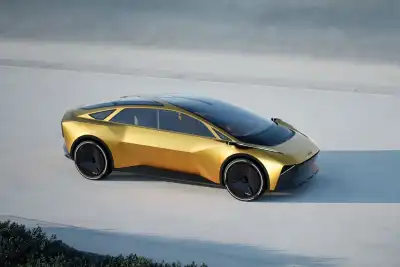Nissan is diving into the world of self-driving cars and plans to roll out a robotaxi service by the end of this decade. The first location for this futuristic taxi service will be in the Minato Mirai area near Nissan's headquarters in Yokohama.
After spending more than ten years perfecting autonomous driving technology, Nissan has been conducting trials for its robotaxi under the Easy Ride name since 2017, both in Japan and internationally. The official launch of the commercial robotaxi service is scheduled for 2027, starting with a trial in Minato Mirai later this year before gradually expanding in preparation for the full-scale launch.
Nissan has chosen its Leaf electric car as the flagship for its robotaxi fleet. These vehicles are classified at Level 4 on the SAE scale, indicating a high level of self-driving capability. Although they can operate autonomously for extended periods, they are confined to specific conditions, typically within geofenced areas. It's worth noting that other major robotaxi services, like Waymo One in the U.S. and Baidu's Apollo Go in China, also operate at Level 4, with the ultimate goal being Level 5, where self-driving cars can match human driving abilities.
The primary goal of Nissan's robotaxi service is to improve the accessibility of transportation options, especially in countries like Japan, where the population is decreasing, but the demand for ride services, particularly among the elderly, is increasing. The shortage of human drivers in Japan makes autonomous mobility solutions an attractive and practical option.
Despite the promising potential, creating a safe and reliable robotaxi service poses significant challenges. Notable companies, including Argo AI and Uber, have stepped back from the autonomous vehicle race. Cruise, backed by General Motors, had to suspend its service in San Francisco last year after California's DMV deemed their robotaxis unsafe for public use. Cruise has yet to announce when it plans to resume operations.



